#Military strategy
Text
You can tell by the way some people criticize the Jedi as military leaders that they do not understand how war and the military works
“The Jedi invaded Umbara for wanting to leave!”
Umbara didn’t just “want to leave”, they were a republic world that switched sides mid-war, when an ally switches sides, you declare war on them, at a minimum this is to say “you can’t just do this and expect no consequences”, but its also simple strategy, you attack your former ally so that you can prevent whatever assets they have from being used by the enemy, but also so you can hopefully regain said assets (umbara has unique and advanced technology)
have people not played Risk?
“The Jedi invaded Geonosis again!”
the separatists retook Geonosis and reactivated/built factories there to produce war material (battle droids specifically), as long as these factories were active the war would be more difficult, the Republic invaded to shut down these factories down, its just good strategy
Related, "the Jedi attacked planets during the war"
Yeah, it's war, that's how it works, you can't fight a war exclusively on the defensive (especially not when the enemy has a manpower/production advantage), you have to go on the offensive so the enemy can't build up their strength to attack (and that doesn't even get into the humanitarian reasons to go on the offensive, the separatists are enslaving and murdering whole populations-WWII parallels anyone?-you can't help them if you only fight defensively
“The Jedi used the Clones as meat shields/cannon fodder!”
cannon fodder has a real definition, usually being poorly trained, poorly equipped soldiers sent out for no other purpose other than to soften up the enemy for the main assault
this is not at all how the Jedi treat/command the Clones
first the Clones are highly trained (10 years of it) and well equipped-probably the best out of any SW military
second, the Jedi fight on the front lines with the Clones, that is not something you do with cannon fodder
third, nothing the Jedi ask of the Clones is really that much more than what would be asked of a soldier in a real world military
I’m sure there are other examples but these are the biggies, please suggest more if you can think of any
#sw#star wars#the clone wars#war#wooloo writes#wooloo-writes#military strategy#pro jedi#in defense of the jedi#clone troopers#jedi
1K notes
·
View notes
Note
How much of Robbs victories do you think comes from the fact he had a really excellent staff of front line officers (with himself being one of the best)? His tactics seem very reliant on the ability of his subordinates to emulate his own methods of shock attacks, since his special move is splitting up his army for near simultaneous actions at multiple points. He personally needs to be great at identifying the weakest point for the soldiers he directly commands, but so does the Greatjon, the blackfish, and any other commander leading the other fragments as far as I can tell.
Personally, I would hesitate to describe a medieval army led by feudal lords as a "staff of front line officers."
To answer your question: the only one of Robb's men I think that really describes is the Blackfish, who Robb calls "my eyes and ears." While I don't agree with those who think that the Blackfish was the brains of the operation and Robb was a mere figurehead, the Blackfish has a certain set of skills that go above and beyond the norm for a highborn man's military education. In particular, his specialization as a leader of scouts and outriders made him absolutely invaluable at the Whispering Woods, an important although less decisive officer at the Battle of the Camps, and the one man Robb trusted to hold the Riverlands for him in his absence.
When it comes to the rest of his lords - Greatjon Umber, Maege Mormont, Galbart Glover, Helman Tallhart, etc. - most of them are pretty conventionally competent. They can command a detachment in advance or retreat, follow orders when it comes to where and who to attack, and so forth. There is an element of interchangeability there, however. Apart from the Greatjon having something of a reputation as a juggernaut who's all about charging straight ahead, you could switch around commanders when it comes to something like Nunn's Deep or the Pendric Hills and I don't think anyone would notice.
Robb really only has difficulty with two officers, and it doesn't really come down to their "ability...to emulate his own methods of shock attacks." Edmure I've talked to death, so I'm not going to get into it here, but that came down to a matter of ability to follow orders rather than interpret them in a favorable light. And then there's Roose, where it's a matter of straight-up disloyalty and treason rather than ability - Roose is very good at killing Stark loyalists and can execute adroitly on quite devious plans when it benefits him personally.
#asoiaf#asoiaf meta#robb stark#the war of five kings#military leadership#military strategy#military tactics
46 notes
·
View notes
Text
American Surgeons Return from Gaza, Call for End of U.S. Culpability in ...
youtube
Try a human centric view. Not religious/ethnic. See your own children & grandchildren on both sides of the divide. Imagine the generations of anger, dispossession. Bleeding heart or not. You know this truth.
Most people trust medical professionals for a reason. Is this a just response or revenge? Naive or not, the long term trajectory of these events will be passed to your children.
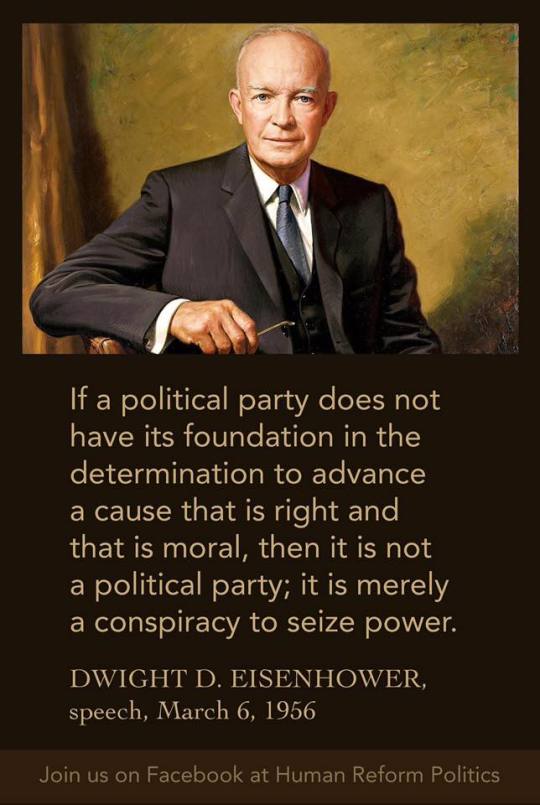


There is no total victory. Just rage, trauma, politics, loss.
#social media#media#peace#childrens rights#united nations#eisenhower#military#military strategy#Youtube
7 notes
·
View notes
Link
The article "Hell in the Hedgerows: What U.S. Troops Faced in Normandy" by Tom Laemlein, published on The Armory Life, discusses the intense challenges faced by U.S. troops in the Normandy campaign during World War II. After successfully landing on the Normandy beaches, Allied forces encountered the Bocage country’s dense hedgerows, which had not been anticipated in planning. These natural and man-made escarpments created formidable defensive positions for German soldiers. German forces utilized numerous tactics, including the use of machine guns like the MG 42 and MG 34, mortars, anti-tank weapons such as the Panzerschreck and Panzerfaust, and snipers. U.S. troops had to adapt quickly, employing bulldozer tanks, hedge-cutters, and innovative tank-infantry team tactics to overcome these obstacles. This led to gradual gains that eventually opened the road to Paris, showcasing both the ingenuity and resilience of U.S. forces in their efforts to break through the German defenses.
#Normandy#World War II#Hedgerow warfare#Operation Overlord#D-Day#Allied forces#German forces#Bocage countryside#Armored vehicles#Infantry tactics#Field Marshal Bernard Montgomery#General Omar Bradley#Hedgerow cutters#Sherman tanks#M4A1 tanks#Close-combat fighting#Historical battles#June 1944#Military strategy#Normandy invasion plans#Saint-Lô offensive#Terrain challenges#Military engineering.
5 notes
·
View notes
Text
The decisive point of the battlefield is the point which is always to be aimed at before all and as far as possible with the mass of the forces.
—Carl Von Clausewitz
4 notes
·
View notes
Text
youtube
#youtube#militarytraining#82nd Anniversary#Guadalcanal Anniversary#Operation Watchtower#Battle of Guadalcanal#Guadalcanal Campaign#Pacific War#Epic Showdown#War Documentary#Military History#World War II#Marine Corps#Military Strategy#Historical Reenactment#Pacific Theater#Combat Tactics#War in the Pacific#Naval Battles#US Military History#WWII History#82nd anniversary#Guadalcanal#island hopping#Guadalcanal campaign#war documentary#documentary film#WWII documentary
6 notes
·
View notes
Text
The Art of Strategy: What We Can Learn from Napoleon's Campaigns
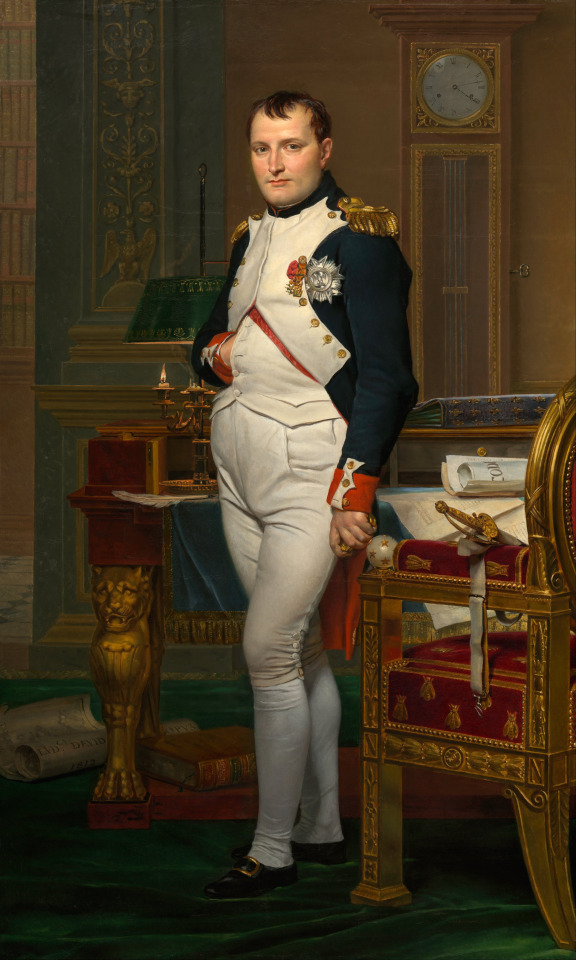
Napoleon Bonaparte, one of history's most renowned military leaders, reshaped the strategic landscape of Europe with his revolutionary approaches to warfare. His campaigns are not just tales of conquest and defeat; they are narratives rich with strategic insights applicable beyond the battlefield. In this exploration, we'll delve into the core principles of Napoleon's military strategies, drawing parallels to strategic planning and tactical execution in our personal and professional lives.
Check out our list: 10 Best Books About Napoleon
Embracing Flexibility and Adaptability
One of Napoleon's hallmark strategies was his adaptability to changing circumstances. Unlike many of his contemporaries, Napoleon was quick to alter his plans in response to unforeseen challenges, understanding that rigidity could lead to downfall. This principle holds true in our daily endeavors. Whether navigating career paths or personal goals, the ability to pivot in response to changing environments and unexpected obstacles is crucial. Like Napoleon, who reassessed and adjusted his strategies mid-battle, we too must remain flexible and open to revising our plans to overcome life's unpredictable challenges.
The Value of Decisive Action
Napoleon was renowned for his decisiveness on the battlefield. He believed in the power of swift, bold actions to unbalance opponents and seize opportunities. This decisiveness can be translated into our decision-making processes. In a world saturated with information and choices, the ability to make timely and bold decisions can set us apart. It involves assessing situations with clarity, weighing risks against potential rewards, and acting with conviction. By embodying Napoleon's decisiveness, we can navigate life's crossroads with confidence, seizing opportunities that come our way.
The Importance of Strategic Vision
Napoleon's strategic vision was unmatched, often planning campaigns years in advance with meticulous attention to detail. This long-term perspective enabled him to anticipate and prepare for various eventualities, ensuring his army's readiness for the challenges ahead. Similarly, in our lives, having a clear, overarching vision is paramount. It guides our daily actions and decisions, ensuring they align with our ultimate objectives. Whether setting career goals or personal development targets, a well-defined vision serves as a compass, keeping us oriented toward our aspirations.
Concentration of Effort
A key tactic in Napoleon's arsenal was the concentration of forces at the decisive point. By focusing his resources and efforts where they would have the most impact, Napoleon often overwhelmed his adversaries. This principle of concentrated effort can be transformative when applied to personal productivity and professional projects. Rather than spreading ourselves thin across multiple fronts, focusing our energy on critical tasks can lead to more impactful results. It's about identifying our "decisive point" and channeling our resources to where they can make the most significant difference.
Continuous Learning and Improvement
Finally, Napoleon's campaigns were characterized by his commitment to learning and adaptation. He studied the strategies of past military leaders and continuously sought to improve his tactics and approaches. This ethos of lifelong learning and self-improvement is perhaps the most universally applicable lesson. By embracing a mindset of continuous growth, seeking feedback, and learning from both successes and failures, we can navigate the complexities of life with greater wisdom and resilience.
Read more: What to do after reaching your goals
Applying Napoleon's Principles
Napoleon Bonaparte's military genius offers timeless insights into the art of strategy. By embracing flexibility, acting decisively, maintaining a strategic vision, concentrating our efforts, and committing to continuous improvement, we can navigate the complexities of modern life with greater efficacy and purpose. These principles, forged on the battlefields of the early 19th century, remain remarkably relevant, guiding us in our quest for personal and professional fulfillment. As we face our own battles, let us draw inspiration from Napoleon's legacy, applying the art of strategy to conquer the challenges ahead.
#napoleon#napoleon bonaparte#napoleonic#napoleón bonaparte#books#books and reading#reading#biography#military strategy#personal development#leadership#leadership lessons#strategicthinking#history#professional growth#life lessons#self improvement#wisdom
4 notes
·
View notes
Quote
Full-spectrum dominance also known as full-spectrum superiority, is a military entity's achievement of control over all dimensions of the battlespace, effectively possessing an overwhelming diversity of resources in such areas as terrestrial, aerial, maritime, subterranean, extraterrestrial, psychological, and bio- or cyber-technological warfare.
Full spectrum dominance includes the physical battlespace; air, surface and sub-surface as well as the electromagnetic spectrum and information space. Control implies that freedom of opposition force assets to exploit the battlespace is wholly constrained.
Wikipedia
#quote#full-spectrum dominance#military#battlespace#information#politics#geopolitics#technology#warfare#military strategy#war
34 notes
·
View notes
Text
"Mastering Strategy: The Enduring Brilliance of Sun Tzu's 'The Art of War'"
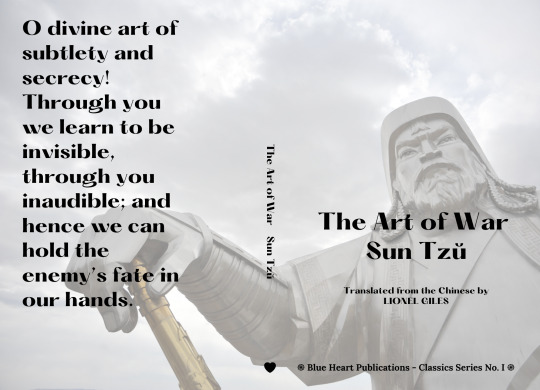
"The Art of War" by Sun Tzu stands as a timeless masterpiece in the realm of military strategy and has transcended its origins in ancient China to become a revered guide for success in various domains. Dating back to the 5th century BCE, Sun Tzu's treatise has not only influenced military tactics but has also found applications in business, leadership, and diplomacy. The title, "The Art of War," serves as an alluring invitation into the world of strategic wisdom, where Sun Tzu imparts his profound insights on warfare and the strategic mindset.
Sun Tzu's treatise comprises thirteen chapters, each a strategic gem that encapsulates the essence of successful warfare. The title echoes the overarching theme—the approach to war as an art form, requiring not only brute force but also a nuanced understanding of the psychological, logistical, and strategic dimensions of conflict. Sun Tzu's teachings are framed within the context of deception, adaptability, and the ability to understand and exploit the vulnerabilities of both enemies and oneself.
The treatise begins with the famous assertion that "All warfare is based on deception." The title, "The Art of War," encapsulates this fundamental premise, emphasizing the nuanced, strategic thinking required to achieve victory. Sun Tzu's emphasis on intelligence, reconnaissance, and the understanding of the enemy's mindset forms the foundation of his strategic philosophy. The title becomes a gateway to a world where war is not just about battles but about outthinking and outmaneuvering the opponent.
One of the enduring qualities of "The Art of War" is its adaptability to different contexts. The title serves as a beacon for leaders and strategists across diverse fields who seek to navigate the complexities of competition and conflict. Sun Tzu's teachings on the importance of knowing oneself and knowing the enemy resonate as universal principles applicable to corporate boardrooms, political negotiations, and personal development. The title becomes a mantra for those who understand that strategic thinking is not confined to the battlefield but is a crucial aspect of success in any endeavor.
Sun Tzu's strategic brilliance is evident in his emphasis on winning without fighting. The title encapsulates this paradoxical approach to war, where the ultimate triumph lies not in the bloodshed of battle but in the ability to secure victory through strategic maneuvers and psychological advantage. The treatise becomes a guide for leaders seeking to minimize conflict and maximize success through shrewd decision-making and calculated actions.
"The Art of War" is not a glorification of war but a pragmatic guide to achieving objectives efficiently and effectively. The title encapsulates the dichotomy of war as both a destructive force and a disciplined art form. Sun Tzu's emphasis on planning, adaptability, and the exploitation of opportunities resonates through the pages, making the title a symbol of strategic acumen that transcends time and cultural boundaries.
In conclusion, "The Art of War" by Sun Tzu is a masterpiece that continues to shape the understanding of strategy and warfare. The title, with its enigmatic simplicity, beckons readers into a world of strategic wisdom, where the artistry of war lies in the meticulous planning, insightful adaptation, and the ability to achieve objectives without unnecessary conflict. Sun Tzu's treatise remains a testament to the enduring relevance of strategic thinking, making the title not just an invitation to study military tactics but an exploration of the timeless principles that govern success in the art of war and beyond.
"The Art of War" by Sun Tzu is available in Amazon in paperback 10.99$ and hardcover 19.00$ editions.
Number of pages: 218
Language: English
Rating: 9/10
Link of the book!
Review By: King's Cat
#Sun Tzu#The Art of War#Military strategy#Ancient China#Strategic wisdom#Deception#Adaptability#Psychological warfare#Logistics#Sun Tzu's teachings#Know thyself#know thy enemy#Intelligence#Tactical acumen#War as an art form#Winning without fighting#Universal principles#Corporate strategy#Political negotiation#Personal development#Strategic thinking#Maneuvering#Calculated actions#Paradoxical approach#Triumph through planning#Efficient objectives#Disciplined artistry#Minimizing conflict#Maximizing success#Pragmatic guide
4 notes
·
View notes
Photo
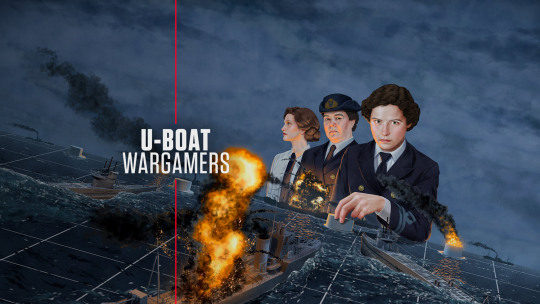
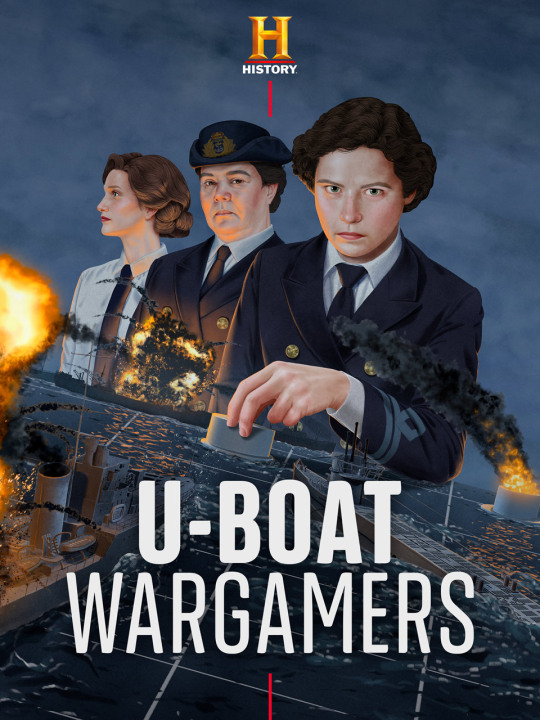
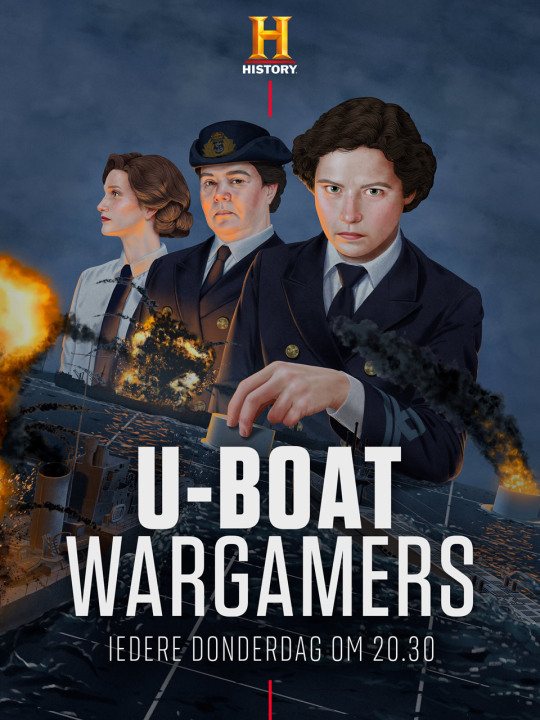
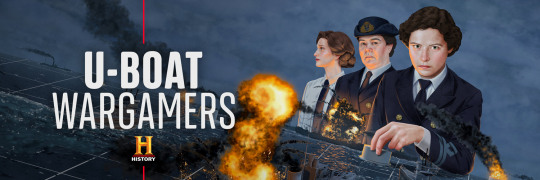
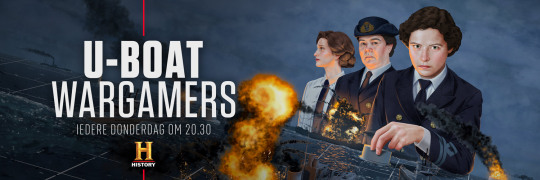
Huge key art (18,750px aka 62.5 inches wide!) for U-boat Wargamers on Sky History UK. January 1943: Britain is on the brink of starvation from ruthless Nazi attacks on merchant ships. The Navy cannot spare any men. Enter the WRNS (Women’s Royal Navy Service) to war game the tactics to defeat the enemy U-Boats.
#history channel#u-boat#u-boat wargamers#wargamer#wargame#war game#war gamer#WRNS#women's royal navy service#wwii#world war ii#german u-boat#u boat#submarine#battle of the atlantic#military strategy#military tatctics#navy#royal navy
3 notes
·
View notes
Text
I have difficulty sometimes talking to people who don't race sailboats.
When I was a teenager, I crewed Larchmont to Nassau on a 58-foot sloop called Cantice. There was a little piece of kelp that was stuck to the hull, and even though it was little, you don't want anything stuck to the hull.
So, I take a boat hook on a pole and I stick it in the water and I try to get the kelp off, when seven guys start screaming at me, right? 'Cause now the pole is causing more drag than the kelp was.
See, what you gotta do is you gotta drop it in and let the water lift it out in a windmill motion. Drop it in, and let the water take it by the kelp and lift it out. In, and out. In, and out, till you got it.
The voters aren't choosing a plumber, Mr. President. They are choosing a president. And if you don't think that your family should matter, my suggestion to you is to get out of professional politics.
And if you think that I'm going to miss even one opportunity to pick up half-a-knot boat speed, you're absolutely out of your mind. When it costs us nothing, when we give up nothing?! You're out of your mind.
— Bruno Gianelli (character) to President Jed Bartlett (character), 'The West Wing' s03e07
#strategy#military strategy#strategic thinking#west wing quotes#bruno gianelli#president jed bartlett
2 notes
·
View notes
Text
youtube
#youtube#Russian defectors#Ukrainian conflict#moral dilemma#military conscience#Kremlin reaction#propaganda#wartorn village#covert extraction#battlefield ethics#treason accusations#international media#coup attempt#ceasefire negotiations#post-war reconstruction#unlikely friendships#patriotism vs. justice#psychological toll of war#military strategy#geopolitical tensions#individual impact on history
0 notes
Text
The Unexpected Hurricane Drill: A Lesson in Resource Management and Readiness
Have you ever been caught off guard by a situation that taught you an invaluable lesson?
While stationed on the East Coast, our Maintenance Officer began approving all leave requests, school requests, and other requests we brought to him as section leaders, even though it meant our Marines would frequently be out of the office. He quietly waited for a day when we were severely…

View On WordPress
0 notes
Text
Think Strategic

Think Strategic UK has been an award winner in 2023 CEO of Year Awards, and 2024 Innovation and Excellence Award. We are a consultancy and a education provider in business. As a consultancy our focus is to make the impossible possible.
We provide bespoke consultancy focused on Strategy Advice, Strategy Shock & Awe, Military Strategy, Management. These complexities around strategy and management begin by knowing the background to competitive advantage, five forces that shape strategy; these concepts form a fundamental building block.
#thinkstrategicuk#entrepreneur#founder#branding#startup#thinkstrategic#strategy#military strategy#strategyshockawe#economy
1 note
·
View note

